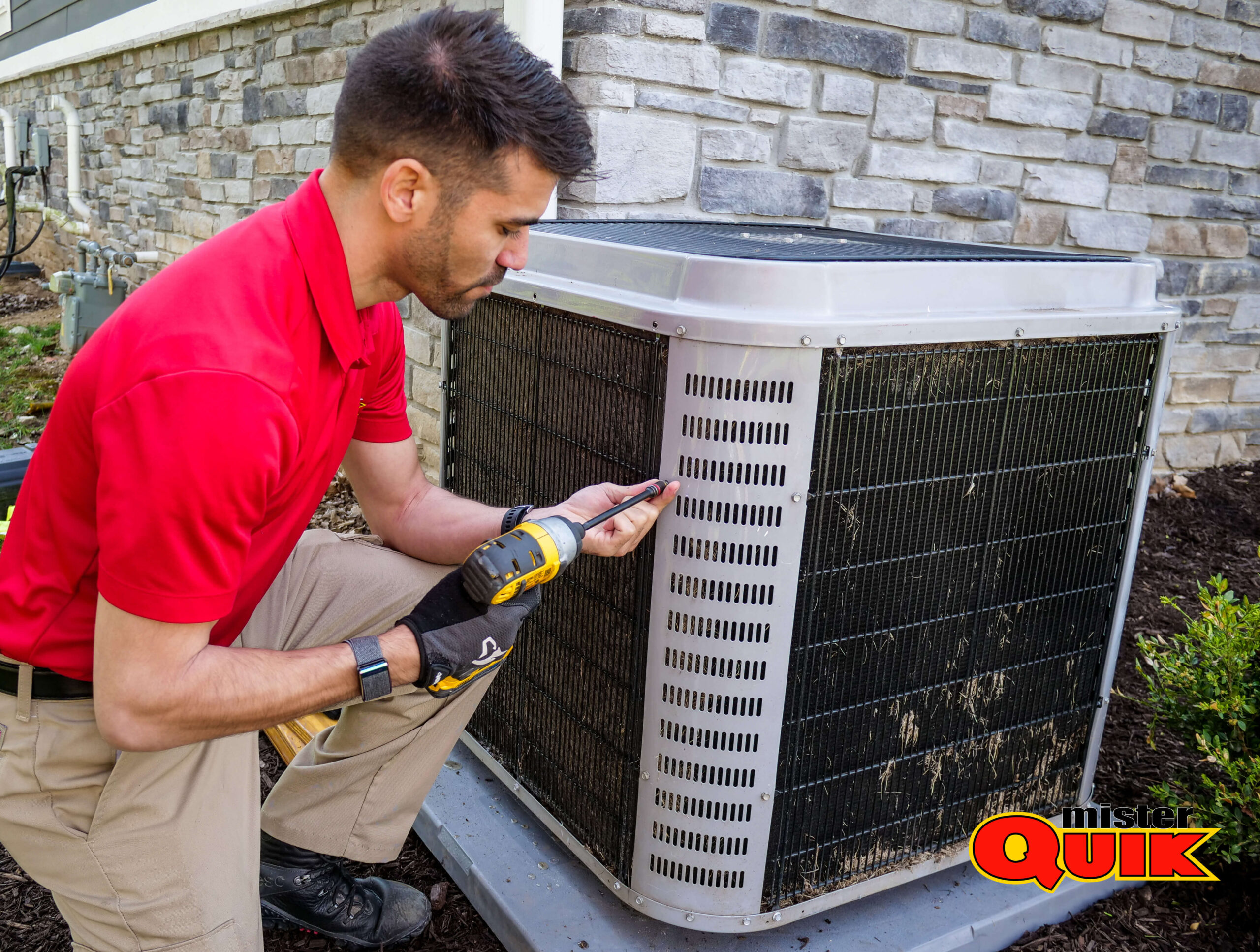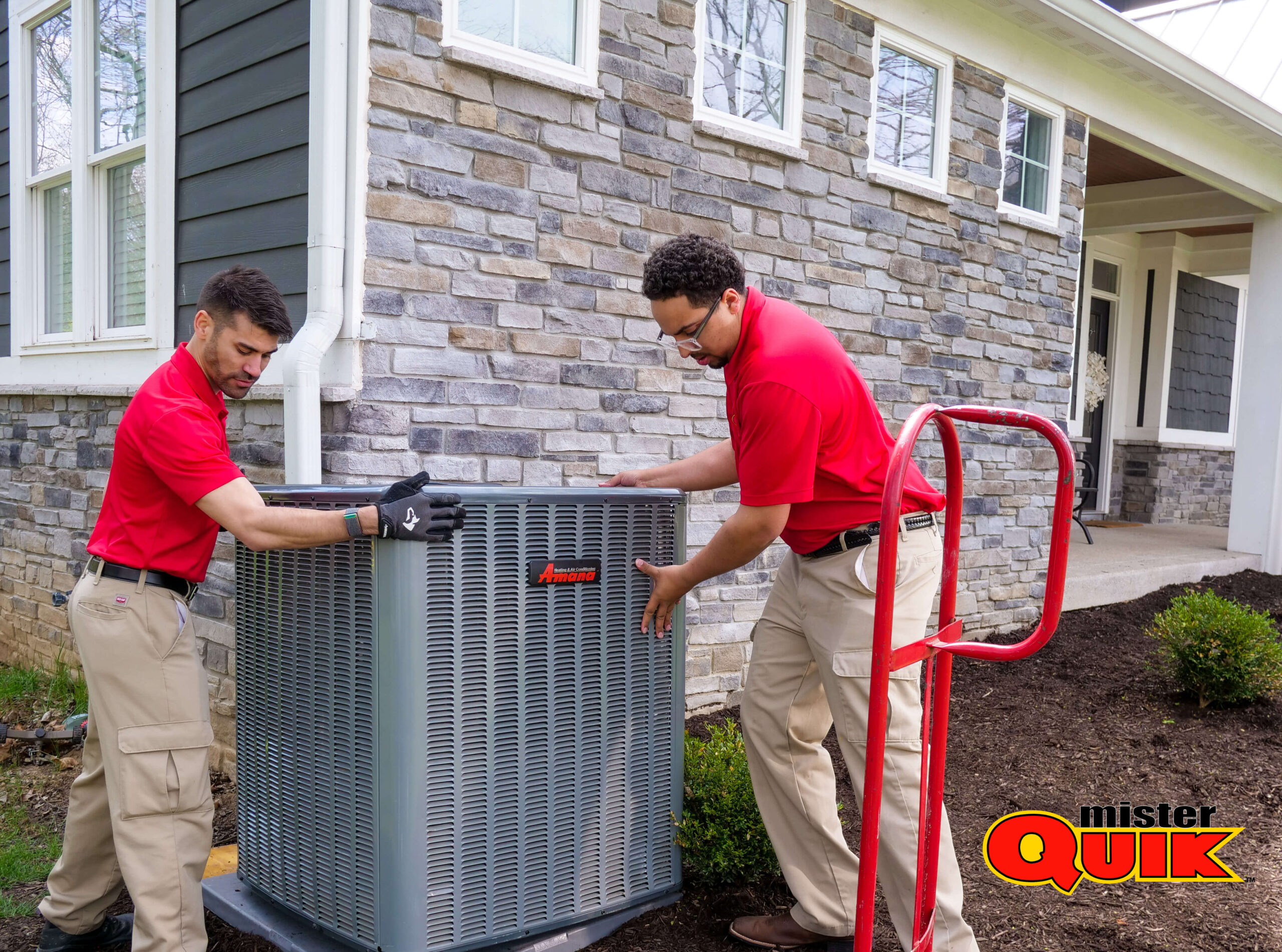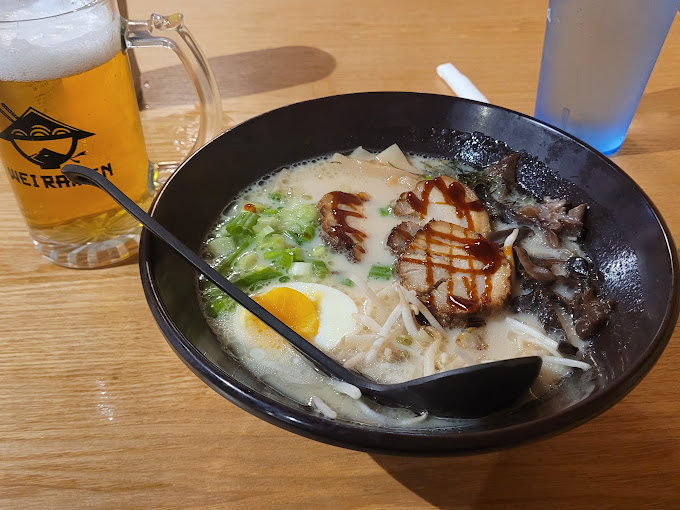Greenwood Cooling Replacement
Schedule on your own without making a call. Click to get started!

Common problems with home cooling units
Home cooling units are essential for maintaining comfort during hot weather, but they can encounter various issues that affect their performance.
Here are some common problems homeowners may face with their cooling systems:
- Poor airflow due to clogged filters or obstructed vents.
- Refrigerant leaks, leading to reduced cooling and environmental concerns.
- Compressor issues like motor failure, causing inadequate cooling.
- Thermostat malfunctions, resulting in inaccurate temperature control.
- Frozen evaporator coils from restricted airflow or refrigerant leaks.
- Dirty condenser coils hinder heat dissipation and increase energy usage.
- Electrical problems such as faulty wiring or tripped breakers.
- Unusual noises indicating mechanical issues.
- Condensate drainage blockages causing excess humidity and potential water damage.
- Aging equipment leading to decreased efficiency and eventual failure.
Regular maintenance and prompt repairs are essential for addressing these issues and ensuring optimal performance. Professional HVAC technicians can diagnose and resolve problems efficiently.
Repairing vs. Replacing Cooling Units
When deliberating repairing or replacing cooling units, several factors must be considered to make an informed decision.
Repairs may offer a temporary solution to issues such as minor leaks or component failures.
However, repairs may not address underlying issues or extend the lifespan of older units.
Opting for replacement ensures long-term efficiency and reliability, especially for aging systems prone to frequent breakdowns.
Newer models offer advancements in technology and energy efficiency, leading to substantial energy savings and enhanced performance.
Substantial energy savings: Energy-efficient cooling units can significantly reduce utility bills compared to older, less efficient models.
Enhanced performance: Newer models often feature improved cooling capacity, better humidity control, and quieter operation, providing homeowners with greater comfort.
Worthwhile investment: Investing in a replacement cooling unit is a worthwhile investment for homeowners seeking lasting comfort and cost-effectiveness. While the upfront cost may be higher, the long-term benefits, including energy savings and improved performance, make replacement a smart choice for many homeowners.
The compressor and fan controls can wear out, especially when the air conditioner turns on and off frequently, as is common when a system is oversized. Because corrosion of wire and terminals is also a problem in many systems, electrical connections and contacts should be checked during a professional service call.
A dirty air filter can block airflow and reduce cooling to your home. In more extreme cases it can cause the system to shut down completely. If your thermostat checks out and you still don’t have cool air, locate your system’s air filter, turn the system off, remove the filter and inspect.
The average lifespan of an air conditioning system is 10-15 years. Central air conditioner lifespan is one of the more important factors to consider when planning to invest in a replacement unit. If your unit is close to ten years old or older, you may want to consider replacing it instead of repairing it.
Just as it does not make financial sense to fix an old car that keeps breaking down, spending money on an aged AC unit is like throwing money down the drain. If your AC is older than 10 to 15 years, it is wise to buy a new air conditioner rather than fixing it.
New compressor technology is much quieter. Further reducing the noise level is the shape of fan blades. They now rotate so quietly you may wonder if they are working at all. Energy Consumption – Older models sometimes used as much as 6000 watts of electricity per hour to effectively cool a single-family home.
Best time for cooling replacement in Greenwood

Determining the best time for cooling replacement involves strategic planning to maximize efficiency and minimize inconvenience. Spring and fall seasons are ideal, as temperatures are moderate, and demand for HVAC services is typically lower. Scheduling replacement during these times allows for flexible installation dates and potentially lower costs. Moreover, preparing ahead of the summer heat ensures uninterrupted comfort during peak cooling months.

Finding expert cooling replacement specialists is crucial for ensuring a seamless and successful installation process. Our team comprises highly-trained professionals with extensive experience in evaluating, recommending, and installing cooling systems tailored to the unique needs and preferences of the community. From assessing the current system to determining the most suitable replacement options, our specialists guide homeowners through every step of the process, ensuring satisfaction and peace of mind throughout the project.
Air Conditioning Replacement Services in Greenwood
Our air conditioning replacement services prioritize efficiency, reliability, and customer satisfaction. We understand the importance of a properly functioning cooling system in maintaining indoor comfort, especially during the hot and humid summers. Our comprehensive services encompass everything from initial assessment and product selection to expert installation and post-installation support. With a focus on quality workmanship and attention to detail, we ensure that homeowners receive top-notch service and enjoy the benefits of a new, energy-efficient cooling system for years to come.
Cooling replacement cost in Greenwood
The cost of cooling replacement depends on various factors, including the size of the unit, its efficiency rating, and the complexity of the installation. Our transparent pricing approach ensures that homeowners receive detailed estimates that accurately reflect the scope of the project. We work closely with our clients to understand their budget constraints and recommend cost-effective solutions that deliver maximum value. While the initial investment in a new cooling system may seem daunting, the long-term savings in energy costs and potential repairs make it a worthwhile investment for homeowners seeking enhanced comfort and efficiency.
Troubleshoot Checklist:
- Check air filters: Dirty or clogged filters restrict airflow, affecting system performance.
- Inspect vents and ducts: Blocked or closed vents hinder airflow, leading to uneven cooling.
- Verify refrigerant levels: Low refrigerant can indicate leaks or system malfunctions.
- Look for ice buildup: Excessive ice on coils suggests low refrigerant levels or airflow problems. If your coil is iced over, you will need to let it thaw before a diagnosis can be done.
- Check thermostat settings: Incorrect settings can cause systems to run inefficiently or inconsistently.
- Inspect electrical connections: Loose or damaged wiring may disrupt power flow, affecting system operation.
- Listen for unusual sounds: Rattling, grinding, or squealing noises may indicate mechanical issues.
- Investigate fan and motor: Malfunctioning fan or motor can produce loud or irregular noises.
- Monitor cooling cycles: Short cycling or inadequate cooling may indicate underlying issues.
- Assess energy consumption: Sudden spikes in energy usage could signal inefficiencies or system malfunctions.









